CommUnityCare Health Centers Announces Key Leadership Transitions to Support Future Growth
CommUnityCare Health Centers is proud to announce a series of leadership transitions that reflect the organization’s value-oriented growth and continued commitment to delivering high-quality, compassionate care to the communities it serves. These changes come at a time of opportunity, reflection and forward momentum, allowing a realignment of leadership to further support our teams, enhance operations, and strengthen the care experience for our patients.
“CommUnityCare will always be focused on what matters most—our mission, our people, and our patients. As the landscape of healthcare delivery and financing shifts, we are evolving to ensure our impact only accelerates. Key to this evolution are vital leadership changes that open the door to new collaboration, fresh ideas, and strategic progress,” said CommUnityCare Interim President and CEO, Dr. Nick Yagoda. “Our future holds extraordinary promise, and we believe these new appointments position us to move confidently toward a more integrated and impactful model of care delivery.”
Leadership Transitions
Nancy Ban, CommUnityCare Chief Operating Officer, will be stepping down to take on a new role as CEO of a Federally Qualified Health Center on the East Coast. We thank Nancy for her years of extraordinary service and leadership and wish her all the best in this next exciting chapter.
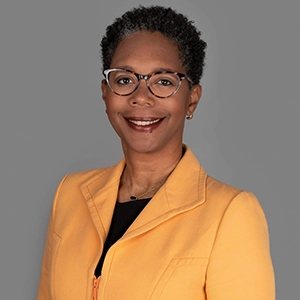 To ensure continuity and stability during this transition, Tara Trower, CommUnityCare Chief Strategy Officer, will serve as Interim Chief Operating Officer. Trower brings a collaborative, mission-driven approach to operational leadership and will work closely with our executive team to ensure clarity, coordination, and continued focus on delivering excellent care. She will be supported by Kim Heinonen, Chief Transformation Officer for Central Health, who will serve in an advisory capacity.
To ensure continuity and stability during this transition, Tara Trower, CommUnityCare Chief Strategy Officer, will serve as Interim Chief Operating Officer. Trower brings a collaborative, mission-driven approach to operational leadership and will work closely with our executive team to ensure clarity, coordination, and continued focus on delivering excellent care. She will be supported by Kim Heinonen, Chief Transformation Officer for Central Health, who will serve in an advisory capacity.
We are also pleased to announce the following leadership appointments:
 Asad Asghar has been promoted to Vice President of Business Transformation, where he will lead key efforts to improve operational efficiency and drive innovation across our health centers.
Asad Asghar has been promoted to Vice President of Business Transformation, where he will lead key efforts to improve operational efficiency and drive innovation across our health centers.
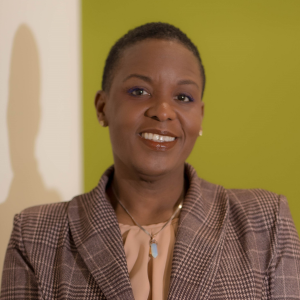 October Ambrose, Vice President of People Partnerships & Engagement at Central Health, will officially join the CommUnityCare Senior Leadership Team, bringing her expertise in team engagement, culture, and workforce development.
October Ambrose, Vice President of People Partnerships & Engagement at Central Health, will officially join the CommUnityCare Senior Leadership Team, bringing her expertise in team engagement, culture, and workforce development.
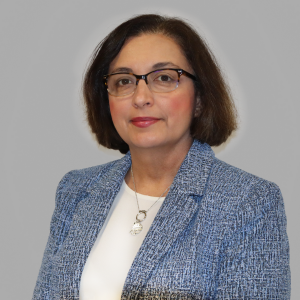 Dr. Rosa De La Torre has been promoted to Chief Population Health and Integration Officer; a new role focused on advancing value-based care strategies and aligning care delivery with our mission to improve health outcomes across Central Texas.
Dr. Rosa De La Torre has been promoted to Chief Population Health and Integration Officer; a new role focused on advancing value-based care strategies and aligning care delivery with our mission to improve health outcomes across Central Texas.
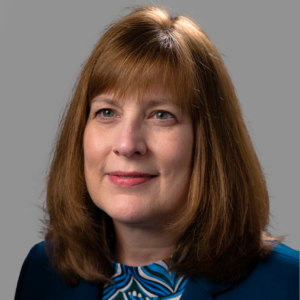 Dr. Susan Dubois is serving as Interim Chief Medical Officer following Dr. Nicholas Yagoda’s appointment as Interim President and CEO. The search for a permanent CEO is already underway in collaboration with Central Health.
Dr. Susan Dubois is serving as Interim Chief Medical Officer following Dr. Nicholas Yagoda’s appointment as Interim President and CEO. The search for a permanent CEO is already underway in collaboration with Central Health.
To see a full list of our leadership and their bios, click here.
At CommUnityCare Health Centers, these changes represent more than new titles—they reflect a renewed energy and vision for the future. Together, we are building a stronger system of care, one where our teams are empowered, our patients are supported, and our mission is fulfilled at every level.
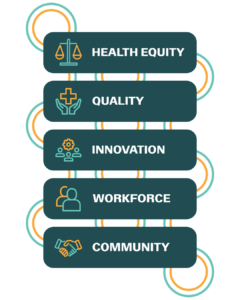
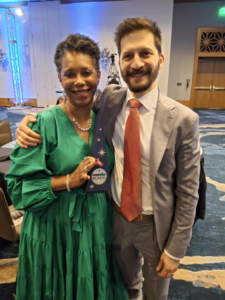
 CommUnityCare Health Centers is excited to begin services at the new Central Health
CommUnityCare Health Centers is excited to begin services at the new Central Health 
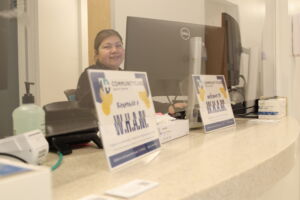
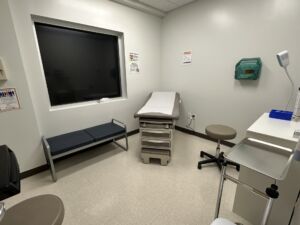
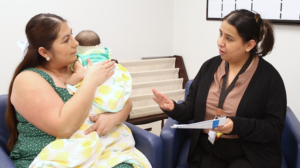 Rodriguez, now a mother of four, has relied on the CommUnityCare OB Care Coordinator team throughout each of her pregnancies. Her most pregnancy was met with complications, navigating preeclampsia complications and her baby spending time in the NICU for several weeks.
Rodriguez, now a mother of four, has relied on the CommUnityCare OB Care Coordinator team throughout each of her pregnancies. Her most pregnancy was met with complications, navigating preeclampsia complications and her baby spending time in the NICU for several weeks. 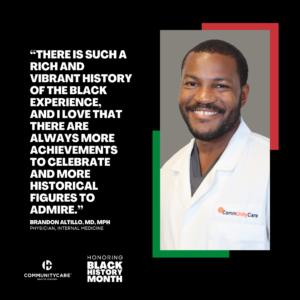
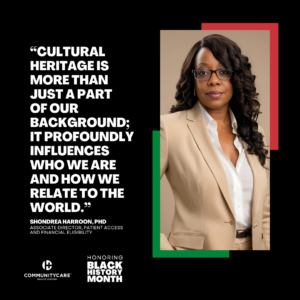
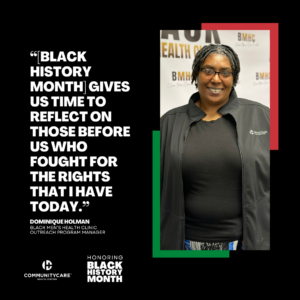
 CommUnityCare Health Centers is proud to celebrate Dr. John Weems, Associate Director of Addiction Medicine, for receiving the prestigious Ruth M. Bain Young Physician Award by the Travis County Medical Society (TCMS). This accolade recognizes physicians 40 years or younger, or with fewer than eight years in practice, who are admired by their colleagues as model physicians. Dr. Weems’ unwavering dedication to addiction medicine, his transformative impact on patients, and his leadership in addressing one of today’s most pressing public health crises make him exceptionally deserving of this honor.
CommUnityCare Health Centers is proud to celebrate Dr. John Weems, Associate Director of Addiction Medicine, for receiving the prestigious Ruth M. Bain Young Physician Award by the Travis County Medical Society (TCMS). This accolade recognizes physicians 40 years or younger, or with fewer than eight years in practice, who are admired by their colleagues as model physicians. Dr. Weems’ unwavering dedication to addiction medicine, his transformative impact on patients, and his leadership in addressing one of today’s most pressing public health crises make him exceptionally deserving of this honor.